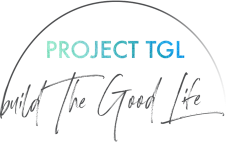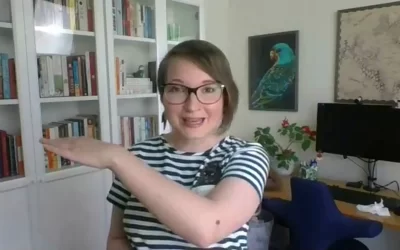Here’s an interesting fact about your brain: your brain interprets all change as scary, and goes into fight or flight mode whenever you depart from your established routine.
This applies equally to positive change, like a new exercise regime that will make you healthier and feel more energetic, or meeting a new potential friend, or getting a new job. (One Small Step Can Change Your Life, p. 43) Sometimes you can convert this adrenaline into motivation (fight), which is why it can be so easy to implement big changes you’re excited about. But the rest of the time, what happens instead is flight: you back off from the change.
This is why establishing new habits – like that exercise regime – is so hard. (You’ve always wondered why forming new habits is so hard, haven’t you? You’re welcome.)
So how do you sneak past your brain’s natural defensiveness, and make positive changes easier to achieve?
You form a tiny habit.
Tiny habits are all about making big changes in tiny, tiny steps. Let me give you an example: my own exercise regime. I have a complicated history with moving my body, and have spent a lot of time as that person who knows I should have an exercise regime, but never doing anything about it. At the start of 2016, I decided to try a tiny habit: I bought a skipping rope, and committed to skipping for one minute every day. Just one minute.
On days when it was raining, or I just for no explicable reason felt overwhelmed at the thought of skipping for even one minute, I visualised skipping for a minute from the comfort of my armchair.
I felt foolish, some days, doing my one minute of exercise (or my one minute of visualising exercise), and wondered if I was going to get anywhere. But (very) gradually, I increased the amount of time I was spending skipping. I didn’t get very far for months. I got up to two and a half minutes, and stalled. But I kept at it.
And then one day in November 2016, my local gym was having a special on memberships and I thought “hey, why not join the gym?”, and I started going to the gym every week.
What happened here? I bypassed my brain’s fight or flight system by introducing a change so tiny that it didn’t even feel like an actual change. In the months I spent skipping for a minute each day, my brain was forming a new relationship to exercise: a relationship of familiarity. On the days when even that one minute seemed like too much effort, I strategically avoided fight-or-flight while still developing that relationship of familiarity through visualisation.
My brain and exercise, they’re old friends now. When that membership special came up, joining the gym didn’t set off my fight or flight response because committing to regular exercise no longer felt like change.
Now, granted, it did take me eleven months. The good news is that most tiny habits start paying off more robustly in a shorter period, like a month or two (like I said, I have a complicated history with moving my body). But actually, when I think about it honestly, eleven months to achieve a good exercise routine is a sensational result for me. I’ve been meaning to establish an exercise routine for over ten years. I managed to get excited about regular exercise a few times, but nothing stuck for more than a couple of weeks. It was too scary.
Tiny habits are also great for re-establishing lapsed habits. In the middle of last year, S and I went on holiday for six weeks, and when we returned I struggled to get back into my gym routine. Until I decided to make the habit smaller. Because I’d already done the hard work of establishing the habit the first time, I was able to make a bigger initial commitment: I decided to do just the cardio portion of my workout until I was back in the habit of going to the gym. After that, it didn’t take long to switch back to my full workout.
So there you have it.
What habit have you been trying to establish? How can you make it a tiny habit?
You could read more by starting with just one page a day, get into the habit of standing at your sit-stand desk by starting with 3 minutes daily (just me?), practise portion control by leaving just one bite on your plate.
The world is your oyster.




